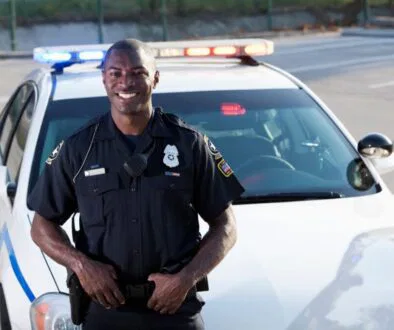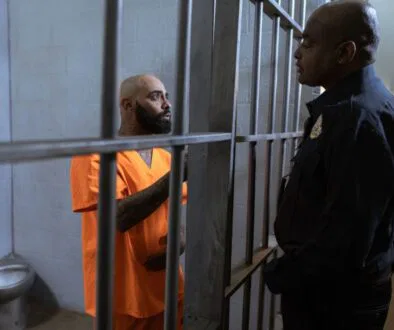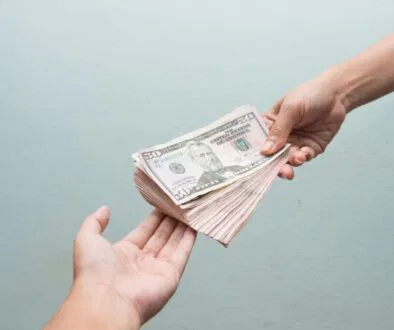Probation vs. Parole: What’s The Difference?

Published July 18, 2021
When someone gets into legal problems and violates the law, they may suffer various penalties, depending on the nature and severity of their offense. Probation and parole are two often used yet frequently misunderstood penalties that a judge may impose. Between probation and parole, there is a significant procedural distinction.
So what is probation vs parole, really? Probation is a mandatory component of the offender’s first sentence, but parole occurs considerably later, allowing the offender to be released early from jail. Probation is granted by the judge during the course of the trial. It may be in place of or in addition to jail time. During the probationary phase, the judge will impose restrictions on the offender’s actions.
A parole board grants parole after an offender has served some — or maybe a significant amount — of time. The parole board may evaluate an offender’s behavior in prison and level of rehabilitation when deciding whether to release them early. Additionally, the parole board may impose restrictions on the individual’s actions while on parole.
Defining Probation
Probation is a special kind of legal sanction that the court system may impose on an individual found guilty of certain crimes or legal offenses. Individuals may be sentenced to one of two types of probation. Serving time in prison and then being placed on probation once a portion of the sentence has been served is a popular alternative. Certain people are given the option of probation rather than incarceration, and if the probation period is successfully completed, they can avoid ever going to jail.
Furthermore, probation allows an individual to remain in their community while under the supervision of a probation officer. However, it is not available for every charge –– some criminals are sentenced to jail or prison without ever being offered probation –– and hence many feel it worth exploring if it is offered at their hearing. Conditions of probation vary significantly depending on the individual, the circumstances, and the offense but may include the following:
- Local community service
- Counseling programs to assist individuals struggling with drug or alcohol abuse
- Fines and reparations for the harm caused
- Jail time with the possibility of probation at a later date
- Regular reporting to the probation officer
- Restriction on substances such as alcohol and tobacco
- Restriction on the possession and use of firearms
- Limitations inside the community where they may be
As with probation, you will still be required to fulfill your sentence if granted parole. However, you will do so outside of prison. You must adhere to specific guidelines. Generally, you must either obtain work or demonstrate to your probation or parole officer that you have made an effort to locate work.
What is Probation Violation?
A probation violation occurs when you violate the terms of your probation and fail to adhere to the court-imposed arrangement. If a judge finds that you violated your probation, you may face additional probation periods, substantial fines, revocation of your probation, or jail time, among other consequences.
Understanding the Role of a Probation Officer
Probation officers guarantee that the judge’s rules are followed and report on both difficulties and progress. Additionally, they collaborate with the community’s social services to assist people on probation in regaining their stance in life. This can be accomplished through introducing their clients to career prospects as well as health and psychiatric services. Due to the complexity of this function, a probation officer can be a valuable ally for someone in need.
Moreover, probation officers –– through acting as a link between individual experience, social services, the judicial system, and the community –– have the potential to positively impact individual lives and function as a force for good. Their duties may include casework in high-crime regions as well as with disadvantaged groups, which can be emotionally taxing but also profoundly rewarding.
Defining Parole
Parole is a condition that may become accessible following the completion of a portion of a sentence of jail time.
We frequently hear about individuals receiving time off for good behavior or being released on parole. This means they have shown an ability to change their behaviors and avoid causing trouble, as well as a willingness to rejoin society as a contributing member. When the total of their calendar time served plus their good time credit equals the duration of their jail term, eligible criminals are released on mandatory supervision.
Additionally, there are parole rulings that allow an inmate to serve a portion of a jail sentence on parole in the community. Thus, the offender is permitted to remain in the community but is placed under surveillance. Moreover, he is required to comply with a series of stringent conditions meant to limit the likelihood of future offenses for the remainder of the probation period.
Suppose the supervisory body agrees to grant parole to an individual. In that case, they will be handed a list of the conditions of release they must adhere to in order to avoid re-incarceration.

ADVERTISEMENT
Conditions of release may include broad provisions such as abiding by all applicable laws, abstaining from drinking, refraining from specific sections of the community, and not being permitted to drive.
Additionally, other technical responsibilities include reporting for checks, accepting parole adviser visits, and reporting any residency or employment location changes. Failure to adhere to any parole requirement might result in a parole violation. Whether the violation results in your return to jail is determined by the probation committee’s ultimate decision, the gravity of the violation, and the remaining time on your overall probation hearing.
Parole Officer Overview
Parole officers assist people who have completed their prison sentences. Prior to release, offenders are appointed parole officers who assist them in developing reentry plans. They assist their clients in successfully reintegrating into their communities and achieving personal, social, and professional success.
When necessary, they connect their clients with drug and alcohol abuse support systems and social services –– like community health clinics or nursing homes. They may also assist them in obtaining housing and securing employment or schooling. Release officers’ principal objective is to guarantee that their clients comply with the terms of their parole. As with probation officers, a parole officer’s daily responsibilities are varied and can be emotionally taxing. However, many individuals in this position find the work of assisting others in improving their lives following jail to be extremely rewarding.
Difference Between Probation vs Parole
Now, let’s get to the point where we will understand probation vs parole. Probation is granted directly by the court, whereas parole is granted by the parole board upon completing a minimum jail sentence. Parole is frequently granted to those who have demonstrated excellent behavior and are deemed safe to reintegrate into society. Parole terms might be quite similar to probation terms. If a parolee does not adhere to the terms of the release, they may be ordered to return to jail or prison. Both parole and probation are intended to assist an offender in breaking and avoiding behaviors that may lead to future offenses.
Differences Between Parole vs. Probation Officers
While both probation and parole officers work with convicted people, probation officers work with those sentenced to probation rather than jail time. Alternatively, parole officers deal with ex-offenders. Individuals who are released from prison and placed on parole may have unique mental health needs that a parole officer must take into account when connecting them to community social services.
Probation and parole officers deal with clients who have committed a variety of offenses. Probation in place of jail time is usually reserved for those who have committed misdemeanors or less severe felonies and nearly never for those who have committed violent crimes. Individuals sentenced to prison frequently commit more serious offenses, while they may still be eligible for release. Individuals’ personal attributes and behavior are considered in addition to the nature of their crimes by parole boards.
What Does Pardon Mean?
Pardons are intended to assist people in clearing their reputations of alleged crimes, not merely in rehabilitating or reintegrating into society. Typically, it is issued by higher-level government officials, such as the president or local governor. These authorities must determine if pardoning the perpetrator is in the public interest. A pardon effectively expunges a criminal’s record and cancels all remaining fines, allowing them to re-enter society with no criminal record.
Reduce Your Jail Call Costs By Up To 90% Per Minute With GlobalTel
GlobalTel’s inmate calling service lowers jail call per minute rates by up to 90% for jail calls from US facilities. Sign up now and use the special jail call phone number we create for you to eliminate the long distance jail call fees. Try GlobalTel for only $45.99 for 90 days. Make US/domestic and international jail calls at the local rate and stay connected to your incarcerated loved ones for less. Learn more about how to sign up for calls from inmates here.

This Content Is Fact Checked
Our esteemed team of specialists has thoroughly validated the accuracy of this information. Discover further details about the rigorous editorial guidelines for our website here.
ADVERTISEMENT

About The Author
Krizzia Paolyn is an SEO Specialist with a bachelor’s degree in Psychology. It has always been her passion to share her voice, and at the same time, to encourage other people to speak up.




